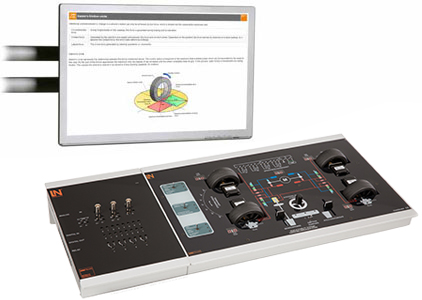ABS/ASR/ESP UniTrain Course
Brake systems of modern motor vehicles are becoming increasingly complex. Electronic aids such as ABS, ASR and ESP are now standard features in such systems. They are designed to keep the vehicle stable with physical limits and thus help assist in protecting the driver. Each individual system is mutually dependent and in part uses the same sensor signals. With this training system the trainee becomes familiar with and understands how the various systems function and interact.
- Process control and instrumentation
- Driving safety in motor vehicles
- Basic physics of driving
- Investigation of components
- Anti-lock braking systems (ABS)
- Understanding a system overview
- Requirements for anti-lock braking systems (ABS)
- Investigation of how an ABS control system operates
- Function of a typical ABS braking system
- How brake boosters and hydraulic brakes work
- Detecting the effects of typical faults in an ABS braking system
- Traction control systems (ASR)
- Identifying and describing functions
- Objectives and structure of ASR
- Investigation of typical control situations
- Electronic stability control (ESC)
- Requirements for electronic stability control
- Objectives and function
- Response to various driving manoeuvres
- Investigation of overall control system and control variables
- Fault simulation (faults can be activated via computer)
Product: ABS/ASR/ESP UniTrain Course
Product Code: CO4204-6W

